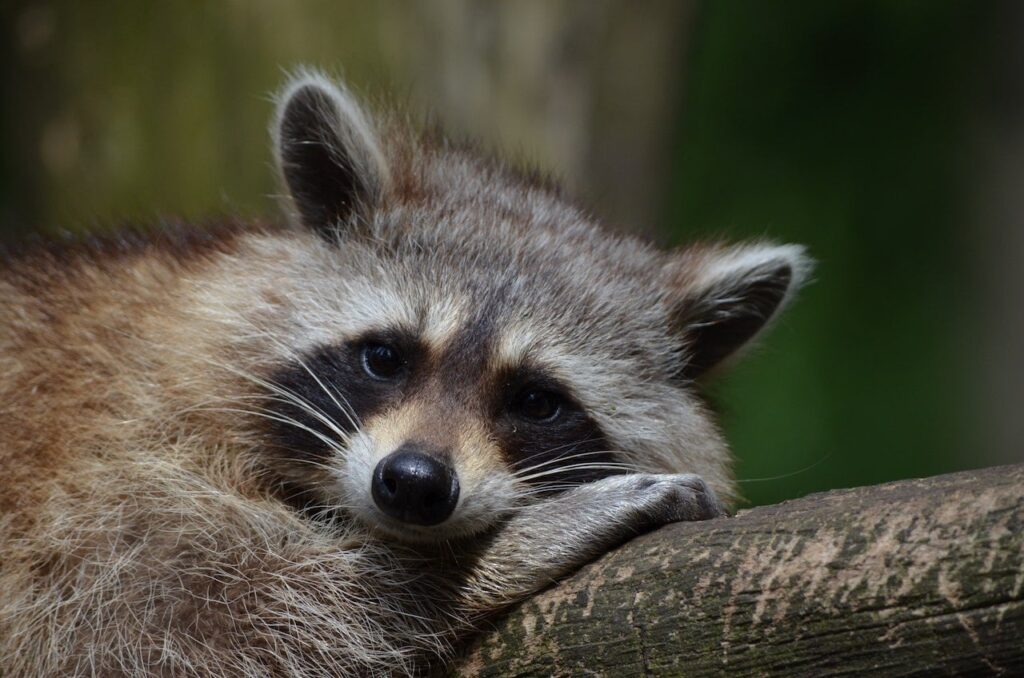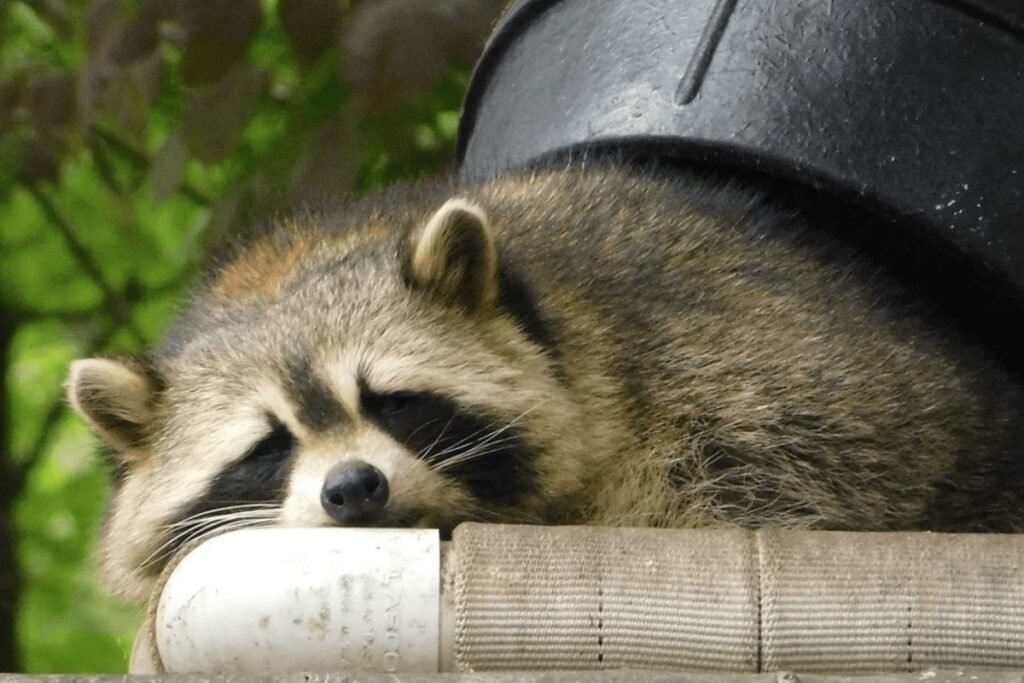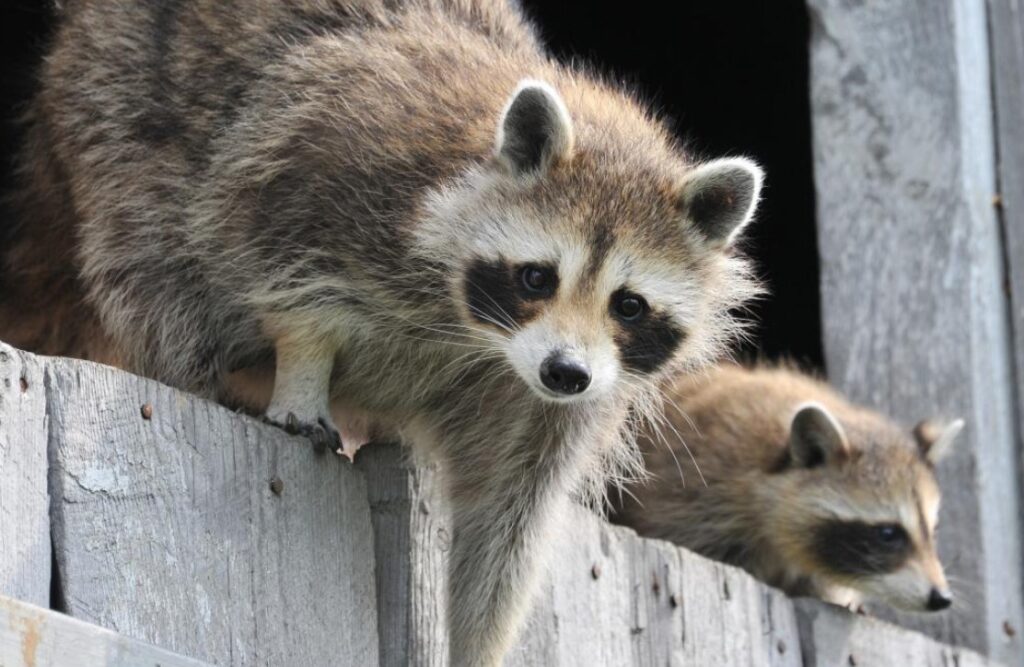
To many, raccoons are endearing creatures with mischievous eyes and dexterous paws, often seen as harmless visitors that might occasionally tip over a garbage can.
Their adorable appearance, accentuated in popular culture and petting zoos, makes it difficult for some to perceive them as potential threats.
However, beneath their playful facade, raccoons, in their quest for survival, often bring a wave of destruction and health concerns into our backyards and homes.
Encounters with these wild animals can range from garden nuisances to serious safety concerns, prompting homeowners to seek solutions, be it through DIY methods or professionals.
As urban landscapes expand and raccoon habitats intertwine with human settlements, understanding the problems they pose and strategies for safe removal has never been more crucial.
This post delves into the hidden threats of raccoons, offering insights and tips on ensuring your safety, and that of your beloved pets and property.
The Not-So-Harmless Charm of Raccoons

Raccoons are pretty cute animals. Many people go to petting zoos to play with them. Other people keep animals as pets.
But let’s not forget that raccoons are wild animals first and foremost.
And their massive raids on human habitation can cause a lot of trouble. Therefore, you should follow the link https://critterstop.com/safe-wildlife-removal/raccoon-removal/ and order a professional company that deals with this issue.
What harm can raccoons cause to humans?
Raccoons can cause a lot of damage to both human homes and their inhabitants:
- destroy your plot, house and other nearby buildings;
- destroy your plantings at the house – destroy both crops and already ripened fruits;
- kill small domestic animals and birds;
- breed your offspring in your attic or basement;
Animals can also infect both you and your pets with dangerous infections and parasites.
How to get rid of raccoons?
Raccoons are cute and funny animals only in captivity. Wild animals can cause you a lot of problems.
Therefore, the only thing you should do when you notice these predators in your area is to try to get rid of them on your own or with the help of professionals.
Mechanical traps and traps
Mechanical traps are an effective measure to get rid of raccoons. If you don’t have enough money to buy a ready-made trap, you can make it yourself.
For example, install a thorny fence around the perimeter of the site or plant tall varieties of corn.
Chemistry

When raccoons breach the confines of your home, they pose not only a potential threat to your belongings but also to the safety of its inhabitants.
In instances where traditional methods such as mechanical traps fall short, turning to chemical solutions can be an effective alternative.
Types of Chemical Repellents
There are various chemical repellents on the market designed to deter raccoons. Some are made from natural ingredients, like capsaicin, the compound that gives chili peppers their heat.
Others might use predator urines, like that of a coyote or fox, to scare off raccoons by tricking them into believing a predator is nearby.
Ultrasonic repellers
Among other things, ultrasonic repellers will help get rid of raccoons in a private home. They affect the nervous system of animals, forcing them to leave the territory. Such devices are not cheap, but are fully worth their cost.
How to protect yourself from raccoon attacks
As you may have noticed, getting rid of raccoons is not that easy. Therefore, it is better to think in advance about preventing predator attacks. We have prepared six of the most effective measures for you:
The easiest way is to limit access to your home. To prevent raccoons from getting into your home, you can use a very simple steel mesh.
Definitely with small cells. She needs to protect any openings that the animal might use to enter the home. It is important to dig the net deep into the ground so that the animal cannot dig a passage under it.
You need to cut off the branches of trees located close to your home and property to make it more difficult for the raccoon to get to your home.

Always close all doors, windows, vents, and pet doors. Don’t forget that raccoons are nocturnal predators, and therefore will try to raid your home in the dark.
Don’t leave food for your pets in the public domain. Nothing attracts an animal like food, so try to store food in airtight containers in your pantry or shed.
Cover street bins. Raccoons often look for food by rummaging through garbage containers. To avoid attracting animals with food waste once again, it is better to keep the tanks hermetically sealed.
Install an electric fence around the perimeter of your property. A regular fence will be ineffective, since raccoons are smart enough to dig tunnels under them.








